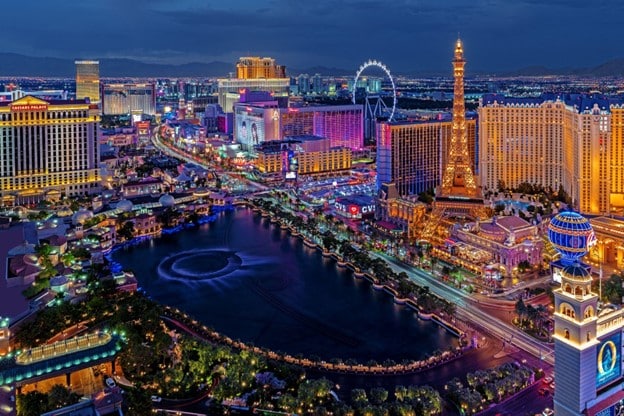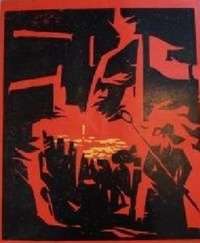
The New Cold War

- Posts : 11664
Join date : 2018-03-03
Age : 36
Location : Hotline Rakovica
- Post n°776
 Re: The New Cold War
Re: The New Cold War

_____
Sve čega ima na filmu, rekao sam, ima i na Zlatiboru.
~~~~~
Ne dajte da vas prevare! Sačuvajte svoje pojene!

- Posts : 52642
Join date : 2017-11-16
- Post n°778
 Re: The New Cold War
Re: The New Cold War
Taj je najveći na svetu posle onog u Svilajncu

- Posts : 22555
Join date : 2014-12-01
- Post n°779
 Re: The New Cold War
Re: The New Cold War
Del Cap wrote:Možda nam već treba novohladnoratovski "salo i sahar" topikNo doubt who this unit sees as its future adversary. pic.twitter.com/nkyJ3kZfzc
— Robert Hopkins (@CobraBall3) March 12, 2023
Pa oni hoce da nas sprece da nam Shenron ispuni zelju kada skupimo svih 7 Dragonball kugli, jer znaju da bi ta zelja bila da se potopi Severna Amerika.


- Posts : 41709
Join date : 2012-02-12
Location : wife privilege
- Post n°780
 Re: The New Cold War
Re: The New Cold War
Mór Thököly wrote:Ajfelov toranj?
Ма јок, ено ти га Палма скроз десно.
_____
the more you drink, the W.C.
И кажем себи у сну, еј бре коњу па ти ни немаш озвучење, имаш оне две кутијице око монитора, видећеш кад се пробудиш...

- Posts : 52642
Join date : 2017-11-16
- Post n°781
 Re: The New Cold War
Re: The New Cold War
Breaking News: The Biden administration is demanding the Chinese company that owns TikTok sell the app or face a possible ban due to national security concerns. https://t.co/ZshM9YnZ3x
— The New York Times (@nytimes) March 16, 2023

- Posts : 11664
Join date : 2018-03-03
Age : 36
Location : Hotline Rakovica
- Post n°783
 Re: The New Cold War
Re: The New Cold War
As Westerners harp on their current war for democracy, China continues to see, with good reason, its society as representing the wave of the future. Until Western democracies develop practical ways to build sustainable economies unhampered by draconian approaches to the often exaggerated climate apocalypse, the Russo-Ukraine War could end up accelerating the appeal of autocracy in much of the world. Nations do not live solely on ideals, press conferences, and non-profit moralizing. They must first feed their people and provide them with at least a whisper of hope. Until the West wakes up from its self-referential slumbers, the tide of history may be turn out less friendly to Ukraine’s loyal friends than to those who either abet aggression or maintain a steady indifference.
https://americanmind.org/salvo/the-new-great-game/
_____
Sve čega ima na filmu, rekao sam, ima i na Zlatiboru.
~~~~~
Ne dajte da vas prevare! Sačuvajte svoje pojene!

- Posts : 52642
Join date : 2017-11-16
- Post n°784
 Re: The New Cold War
Re: The New Cold War
Zavisice od ishoda
Ne sasvim, ali dobrim delom
Ne sasvim, ali dobrim delom

- Posts : 7331
Join date : 2019-11-04
- Post n°785
 Re: The New Cold War
Re: The New Cold War
Pošto su Amerikanci i Evropljani s početkom ruskog napada na Ukrajinu zabranili ruskim avionima prelet, pa su onda Rusi ovima zabranili prelet, sada američke avio-kompanije koje trpe gubitke zbog dužih ruta i nekonkurentnosti traže od Vašingtona da zabrane prelet i sletanje avionima (kineskim, je li) koji su preleteli rusku teritoriju (jer, kao, predstavljaju formu nelojalne konkurencije).
Banned From Russian Airspace, U.S. Airlines Look to Restrict Competitors
Because of the war in Ukraine, U.S. carriers have to take the long way on flights to and from Asia, giving an advantage to foreign rivals flying the same routes.
By Kate Kelly and Mark Walker
March 17, 2023, 5:00 a.m. ET
WASHINGTON — Unable to fly through Russian airspace because of the war in Ukraine, U.S. airlines are stepping up a lobbying campaign on Capitol Hill and at the White House to address what they say is a growing problem: They are losing business to foreign competitors who can take passengers between the United States and Asia faster and more cheaply.
Effectively banned from the polar routes that save time and fuel between the United States and an array of destinations on the other side of the world, U.S. carriers say they are being forced into an aeronautical version of Twister to get passengers where they want to go without taking undue risks.
They have altered trans-Pacific flight plans to ensure they would have somewhere to land in an emergency, reduced passenger and cargo loads to hold down costs as they fly longer distances, and put on hold more than a dozen planned new routes to Mumbai, Tokyo, Seoul and other cities.
On its route from New Delhi to New York City, American Airlines has been forced to stop flights in Bangor, Maine — an hour and a half short of the mark — on 19 occasions, a person familiar with the recent history said. Those stops, which were typically caused by unfavorable winds or weather that depleted the jet fuel supply and ran out the flight crew’s duty hours, delayed passengers and forced a swap-out of 14 pilots and flight attendants.
Those flights were already operating with dozens of the seats deliberately left unfilled, the person added, because less weight on board was required to make the fuel last as long as possible.
Yet many foreign airlines are not banned from flying over Russia, U.S. airlines and their lobbyists say — and are winning more passengers on routes to and from the United States as a result. Continued access to the shorter and more fuel-efficient routes that Russian airspace provides is giving carriers like Air India, Emirates and China Eastern Airlines an unfair advantage, the industry lobbying group Airlines for America said in a recent presentation on Capitol Hill.
Airlines for America estimated the lost annual market share of U.S. carriers at a collective $2 billion per year.
“Foreign airlines using Russian airspace on flights to and from the U.S. are gaining a significant competitive advantage over U.S. carriers in major markets, including China and India,” the presentation, dated February, said. “This situation is directly to the benefit of foreign airlines and at the expense of the United States as a whole, with fewer connections to key markets, fewer high paying airline jobs” and a dent in the overall economy.
U.S. airlines for years had access to Russian airspace through a series of agreements with Moscow. In exchange for that access, they — and other foreign airlines — paid fees to the Russian government for air traffic control support that amounted to hundreds of millions of dollars per year, according to an airline official and an industry advocate.
But after Russia’s invasion of Ukraine last year prompted government officials in the United States, Britain, Canada and Europe to ban Russian aircraft from flying over their airspace, President Vladimir V. Putin of Russia immediately prohibited the United States and other supporters of Ukraine, including Canada and much of Europe, from flying through his skies.
Now airlines are pressing the White House and Congress to fix the problem by subjecting foreign carriers from nations not already banned from Russian airspace to the same restrictions applied to U.S. airlines, effectively forcing them to fly the same routes as their American competitors.
The Biden administration should “take action to ensure that foreign carriers overflying Russia do not depart, land or transit through U.S. airports,” said Marli Collier, an Airlines for America spokeswoman.
The proposal appears to have gained traction with the Transportation Department, which recently drafted an order that would ban Chinese carriers that fly passengers to the United States from flying through Russian airspace, according to three people who were briefed on the order. The order was presented to a group of Biden administration officials, including members of the national security team, on Monday, two of those people said, and has been under consideration this week along with other proposed policy measures.
Transportation Department officials declined to comment. But national security officials are mindful of the potential diplomatic consequences of steps aimed at a longtime ally like India, or of adding further tension to the already strained relationship with China.
A spokesperson at the State Department, which is involved in an interagency government review of the airspace issues, said the department was aware of the concerns and regards the safety of U.S. citizens on foreign soil as a top priority.
“It’s just unfortunate for our air carriers that this has been a collateral issue,” said Manisha Singh, a former assistant secretary for the bureau of economic and business affairs at the State Department who now runs a consulting firm in Washington. “I think we should do anything we can,” she added, noting that the United States should “be careful” before taking steps that might offend foreign countries and affect U.S. tourism and commerce as a result.
Representatives for Delta, American, and United Airlines, the domestic carriers most involved in the lobbying effort, referred questions to Airlines for America, which praised a recent letter by Senate Foreign Relations Committee members to Secretary of State Antony J. Blinken and Transportation Secretary Pete Buttigieg echoing the group’s talking points.
“When foreign airlines overfly Russian territory, even if they do not expect to land on Russian soil, they run the risk of unplanned diversions in Russia for safety, medical, mechanical or more nefarious reasons,” wrote Senator Bob Menendez, Democrat of New Jersey, the panel’s chairman, and Senator Jim Risch of Idaho, its senior Republican. The State and Transportation Departments have not yet responded to the letter, according to someone who has been briefed on the exchange.
Representatives for Air India declined to comment, and representatives for Emirates and China Eastern did not respond to requests for comment.
Arjun Garg, a former chief counsel and acting deputy administrator of the Federal Aviation Administration, said the Biden administration has the legal authority to remedy the complaints from U.S. carriers.
Mr. Garg said both the safety concerns the airlines have flagged and the way in which the current regulations have disadvantaged them are serious dilemmas.
“The foreign air carriers get the benefit of shorter flight times, lower costs, less fuel consumption, all those kinds of advantages that are shut off for U.S. carriers by order of the U.S. government,” Mr. Garg said.
At a time when U.S. fliers are already fed up with fundamental issues like cramped seats, flight cancellations and a cascade of service fees, access to Russian airspace may not be the most pressing worry. Depending on winds, air traffic and other factors on any given day, on a 14-hour flight, avoiding Russian airspace can mean less than an hour of extra flying time in some cases. But it can also mean more than two hours.
But the cost differential is notable. As of Wednesday, the outbound leg of an April round-trip journey from New York’s Kennedy Airport to New Delhi’s Indira Gandhi Airport cost about $1,500 and was estimated at 13 hours and 40 minutes on Air India, according to Travelocity. The most comparable flight on a U.S. carrier: a $1,740 American Airlines trip with estimated flying time of 14 hours and 55 minutes.
But Airlines for America and the major carriers it represents are also highlighting security concerns for Americans who fly over Russia, even on foreign airlines. And history suggests there is cause for anxiety.
In 2014, a Malaysia Airlines flight was shot down over Ukraine, killing 298 people. A Dutch court later convicted, in absentia, two Russian separatists and a pro-Russia Ukrainian with murder.
In 2021, a Ryanair flight from Greece to Lithuania was diverted to Belarus, a close Kremlin ally, after officials in that country alerted air traffic controllers to a supposed bomb threat on the plane. Their true purpose, U.S. prosecutors said, was to arrest a dissident journalist who was a passenger by inventing a false safety issue. (The journalist, Roman Protasevich, was recently put on trial in Belarus, and the officials who the Justice Department says organized the diversion have been indicted in the United States and charged with conspiracy to commit airline piracy.)
Last year, the American basketball star Brittney Griner was detained at an airport near Moscow and later sentenced to nine years in a penal colony for carrying vape cartridges of hashish oil in her luggage. She was freed in December.
There are also operational challenges stemming from the longer routes being flown by U.S. carriers.
Delta Air Lines has redrawn trans-Pacific flight maps repeatedly to comply with both U.S. regulations and the Russian overflight ban, according to internal documents and two people familiar with the changes.
F.A.A. rules require that for long flights, commercial planes must always be within 180 minutes of a suitable airport in case an emergency landing is needed (with certain aircraft, which Delta flies, it can stretch to 207 minutes).
But without access to Russia as an emergency stop, Delta’s Detroit-to-Shanghai flights are now being forced to fly near obscure Pacific landmasses like Shemya Island southwest of Alaska. And if the tiny Shemya airport is too full to handle an emergency landing, Delta pilots must divert to an even farther-flung airport like the one on Midway Atoll in the middle of the Pacific, these people said — adding up to an hour and 40 minutes and more than 3,000 gallons of fuel to the journey when the closer stops are not available.
“You can sometimes think of it as a little bit of an obstacle course,” said Jim Higgins, an aviation professor at the University of North Dakota who flew as a commercial pilot for seven years. Federal regulation around emergency landings, while well-intentioned, he added, “does increase the operational complexity.”

- Posts : 41709
Join date : 2012-02-12
Location : wife privilege
- Post n°786
 Re: The New Cold War
Re: The New Cold War
Серу ко камиле, грлице, хм, има ли још нешто?
_____
the more you drink, the W.C.
И кажем себи у сну, еј бре коњу па ти ни немаш озвучење, имаш оне две кутијице око монитора, видећеш кад се пробудиш...

- Posts : 10464
Join date : 2020-06-19
- Post n°787
 Re: The New Cold War
Re: The New Cold War
паће wrote:Серу ко камиле, грлице, хм, има ли још нешто?
Foke.
_____
Međuopštinski pustolov.
Zli stolar.

- Posts : 41709
Join date : 2012-02-12
Location : wife privilege
- Post n°788
 Re: The New Cold War
Re: The New Cold War
fikret selimbašić wrote:паће wrote:Серу ко камиле, грлице, хм, има ли још нешто?
Foke.
То, бре. Кад ме мрзи да погледам код себе.
_____
the more you drink, the W.C.
И кажем себи у сну, еј бре коњу па ти ни немаш озвучење, имаш оне две кутијице око монитора, видећеш кад се пробудиш...

- Posts : 52642
Join date : 2017-11-16
- Post n°789
 Re: The New Cold War
Re: The New Cold War
Japanski ugao, prava prica pocinje na 28:45

- Posts : 10464
Join date : 2020-06-19
- Post n°790
 Re: The New Cold War
Re: The New Cold War
Postoje li periodi u historiji povijesti da su UN bile ovako nebitne?
_____
Međuopštinski pustolov.
Zli stolar.

- Posts : 15578
Join date : 2016-03-28
- Post n°791
 Re: The New Cold War
Re: The New Cold War
Pa sad, zavisi dal racunas Ligu Naroda u UN
_____
Što se ostaloga tiče, smatram da Zapad treba razoriti
Jedini proleter Burundija
Pristalica krvne osvete

- Posts : 10464
Join date : 2020-06-19
- Post n°792
 Re: The New Cold War
Re: The New Cold War
disident wrote:Pa sad, zavisi dal racunas Ligu Naroda u UN
Ne, samo UN, period posle drugog svjetskog rata.
Zasijedanja, glasanja, sankcije, rasprave, rezolucije, mirovne snage... Uticaj generalno.
_____
Međuopštinski pustolov.
Zli stolar.

- Posts : 7693
Join date : 2020-03-05
- Post n°793
 Re: The New Cold War
Re: The New Cold War
Ne znam dje bih ovo…
In Finland, there is even a beer for the occasion ! It's been sitting in my fridge for that special day. Congratulations Finland !!! pic.twitter.com/nbp91xFeI4
— Eyllora (@Eyllora1) March 30, 2023
_____
"Burundi je svakako sharmantno mesto cinika i knjiskih ljudi koji gledaju stvar sa svog olimpa od kartona."
“Here he was then, cruising the deserts of Mexico in my Ford Torino with my wife and my credit cards and his black-tongued dog. He had a chow dog that went everywhere with him, to the post office and ball games, and now that red beast was making free with his lion feet on my Torino seats.”

- Posts : 5620
Join date : 2016-01-26
- Post n°794
 Re: The New Cold War
Re: The New Cold War
fikret selimbašić wrote:disident wrote:Pa sad, zavisi dal racunas Ligu Naroda u UN
Ne, samo UN, period posle drugog svjetskog rata.
Zasijedanja, glasanja, sankcije, rasprave, rezolucije, mirovne snage... Uticaj generalno.
Не могу ништа материјално да учине јер све зависи од Савета Безбедности. Систем је тако устројен да се без Русије не може, а Русија је сада у потпуном дипломатском и политичком колапсу. СССР никада није био овако дипломатски јадан и тако срозаног политичког угледа.
_____
Burundi is an exception among other nations because it is a country which gave God first place, a God who guards and protects from all misfortune.
Burundi... opskurno udruženje 20ak levičarskih intelektualaca, kojima je fetiš odbrana poniženih i uvredjenih.

- Posts : 10464
Join date : 2020-06-19
- Post n°795
 Re: The New Cold War
Re: The New Cold War

_____
Međuopštinski pustolov.
Zli stolar.

- Posts : 13817
Join date : 2016-02-01
- Post n°796
 Re: The New Cold War
Re: The New Cold War
Članak:
https://www.economist.com/leaders/2023/03/30/why-the-china-us-contest-is-entering-a-new-and-more-dangerous-phase?utm_medium=social-media.content.np&utm_source=twitter&utm_campaign=editorial-social&utm_content=discovery.content
https://www.economist.com/leaders/2023/03/30/why-the-china-us-contest-is-entering-a-new-and-more-dangerous-phase?utm_medium=social-media.content.np&utm_source=twitter&utm_campaign=editorial-social&utm_content=discovery.content

- Posts : 7331
Join date : 2019-11-04
- Post n°797
 Re: The New Cold War
Re: The New Cold War
Graham Allison: “American politics is driving towards a provocation that China could not avoid”
The academic who coined “Thucydides’s Trap” warns we are sliding into a catastrophic new conflict.
By Jeremy Cliffe
What would Thucydides make of the tensions between the US and China today? It is more than an academic question. In his History of the Peloponnesian War, the Athenian general and historian wrote that “it was the rise of Athens and the fear that this instilled in Sparta that made war inevitable”. As the American political scientist Graham Allison first noted in 2012, throughout history when an emerging power has threatened to displace an existing great power this has more often than not led to war, even when neither side sought it. Allison led a research project into “Thucydides’s Trap” at Harvard University that investigated 16 such cases over the previous five centuries, starting with the rise of Spain challenging Portugal in the late-15th century Atlantic. Twelve of these cases led to war.
Speaking to me from Boston over video link, Harvard’s Douglas Dillon Professor of Government gives an ominous answer to the question of current tensions. He says that Thucydides “would not be surprised by any of the behaviours” involved in the US-China relationship today. “Both parties are right on script, almost as if they were competing to show which could better exemplify that classic role of the ruling power and the rising power, and that they are accelerating towards what would be the greatest collision of all times. And if you remember in my book, I forecast ‘expect things to get worse, before they get worse’.” The book in question is Allison’s Destined for War: Can America and China Escape Thucydides’s Trap? (2017), which grew out of the Harvard project.
Allison studied under Henry Kissinger as a doctoral student and in 1971 published Essence of Decision, which challenged prevailing “rational actor” theories of international relations and is widely considered the definitive study of the Cuban missile crisis. He has advised successive US administrations, and as Pentagon planning chief in the mid-1990s shaped America’s post-Cold War recalibration under Bill Clinton. But even by the standards of his first book, Destined for War has had an enormous impact – studied closely on both sides of the Pacific, it is probably the most influential work on international relations of our time. Allison recalls how, at the Davos summit in January this year, a Chinese delegate approached him and asked whether he might be to blame for a “self-fulfilling prophecy” of superpower rivalry. To which came the dry reply: “No, blame Thucydides.”
I start my discussion with Allison (who was one of my professors while I was on a fellowship at Harvard in the early 2010s) by playing devil’s advocate. China’s economy has struggled in the past year and some economists now even question whether it will ever overtake the US in terms of GDP. Does Thucydides’s Trap really still apply? “I think this is the predictable pattern that Thucydides described,” he replies. China’s economy is already larger than America’s as measured by purchasing power; it has displaced the US as the world’s top trading partner; it is the number one supplier of critical materials. “China is a meteoric rising power and the US, as a colossal ruling power, is not about to give up its place atop every pecking order comfortably. And if Americans awaken to it, they’ll be shocked. And they’ll react in the way that Thucydides wrote about.”
We are talking against the backdrop of a tinderbox world. Earlier this year a Chinese surveillance balloon was shot down over US territorial waters. On 14 March a Russian fighter jet forced down an American drone over the Black Sea. And a memo leaked in January this year from General Mike Minihan, the head of US Air Mobility Command, envisioned war between America and China over Taiwan within two years (“I hope I am wrong. My gut tells me we will fight in 2025”). Minihan’s rationale is that presidential elections in both the US and Taiwan in 2024 will provide Xi Jinping, recently confirmed in a third term as China’s president, with a window for action in the subsequent year.
I ask Allison about these upcoming votes. When discussing the US election, he invokes his “four Ps” of how a rising power impacts a ruling power in Thucydides’s Trap. He says all four dimensions are present in today’s US. There are shifts in power (“I used to be able to demand something or push a button, but it doesn’t happen any more”), perception (“I used to look down at you because you were smaller than I was and now I’m looking up or eye-to-eye”), psychology (“I’m accustomed to me being number one and not you, you’re threatening my identity”) and politics (“never let a serious [political] opponent get to your right on an issue of national security”). Allison observes that the Republican presidential platform next year may well advocate formal recognition of Taiwan, as one of the prospective candidates – former secretary of state Mike Pompeo – already does. “American politics is driving towards something that could become a provocation that China could not avoid,” Allison says. On Taiwan’s election, he notes that President Tsai Ing-wen cannot run again and that Lai Ching-te, the candidate of her Democratic Progressive Party, “privately is very keen on becoming an independent country [and he] is not as circumspect as Tsai”.
A particularly striking example of Thucydides’s Trap is the First World War, in which the rise of Germany after unification in 1871, destabilised Europe’s order to the point where it produced catastrophic conflict in 1914. On this I have two questions for Allison.
The first starts from the observation that the spark that began the war flew in Sarajevo, far from where the main powers expected the conflict to play out. Might a US-China conflict be similar? Might the Sarajevo of our times be not Taipei but Brasilia, or Kinshasa, or Islamabad, the capitals of states where the two powers are in a contest for influence? “I was talking to somebody in Washington about that this morning,” Allison replies. “People in Washington have awakened to a Chinese-brokered [diplomatic] recognition [between] Saudi Arabia and Iran. [They think]: ‘Well, that’s inconceivable. Iran is the number one threat to Saudi. So how, how did this happen?’ And then you look around and you say: ‘Wait a minute. The Chinese brokered this deal. The Chinese! They’re on the other side of the world. What do they have to do with these two countries? And where did this come from?’ My summary of this is, ‘Game On, everywhere.’” This could indeed mean that conflict is triggered in an arena other than the Pacific, given China’s growing role in Latin America, Africa and the Middle East. “This heats up the whole atmosphere and feeds part of the growing hostility and even demonisation of China in Washington, in the politics, as Thucydides would have told us.”
The second question concerns blocs: The various alliances within Europe helped to propel the continent to war in 1914. We are speaking in mid-March, shortly after a major US-UK-Australia (Aukus) summit in San Diego and shortly before a summit between Xi Jinping and Vladimir Putin in Moscow. Is the world entering a new era of big-bloc politics? Here, Allison sees fewer resemblances to conditions before the First World War. The future, he says, will be more multipolar than either unipolar or bipolar. “It’s going to be a much messier world, with many, many actors not determined by any [superpower]’s commands.”
Again he cites Saudi Arabia – a supposed American ally that is increasingly following its own course. According to US intelligence, Crown Prince Mohammed bin Salman ordered the assassination in 2018 of Jamal Khashoggi, a Washington Post journalist. But as Allison puts it, the Saudi response to US censure over the killing amounted to: “Screw you. You’re trying to ostracise me, you need me as much as I need you.” Allison sees the Saudi-Iran rapprochement as part of this message to the US: “You will have a lot of independent players not asking for permission, not apologising, just pursuing their interests. I think that will be the game.”
This messier world will be a more dangerous one. I recall Allison’s lectures on the Cuban missile crisis and ask him whether those lessons have been retained in major capitals. “About half and half,” he replies. On the one hand, he argues, Vladimir Putin understands well that nuclear war with Nato would mean the end of everything. But on the other, the chances of catastrophic misunderstandings or miscalculations are rising. “In the case of China, as far as I can see, [bilateral communication] is all shut down after the antics over the balloon. If you believe what we learned in the Cold War – which I think is absolutely right – that communication at many levels, some of them private, to reduce risk is important, [then] the absence of these is dangerous.”
Could China stop Putin from using nuclear weapons? Allison answers by referencing the Cuban missile crisis: “Remember that JFK said that nuclear powers must avoid confrontations that force an adversary to choose between humiliating retreat and nuclear war.” Beijing can keep Putin from pressing that button for as long as the Russian president does not face comprehensive humiliation, he argues. Xi has strong incentives to avoid such an escalation, given Beijing’s concern about Asian states such as South Korea pursuing their own nuclear weapons. Yet here, Allison adds: “If Putin has to choose between losing everything and nukes, I’m betting he chooses the latter. I’m betting that he strikes Ukraine with a tactical nuclear weapon.”
The conversation leaves me with the impression of a world careening towards yet greater chaos and conflict, blind to the wider forces of history. “I think too often, we imagine that we’re writing on a blank slate, that we can just decide what we want to do,” says Allison. How much should we feel beholden to historical patterns such as Thucydides’s Trap? He replies that structural realities determine about 80 per cent of events. “I might like to run a marathon in Boston,” the 83-year-old professor says. “But in this life it ain’t gonna happen, given my age.” But, I note, that leaves 20 per cent of events that can be shaped. “Exactly,” comes the reply. “There are two mistakes here. One is to be arrogant: ‘I’m actually writing on a blank slate.’ The other one is to become fatalistic.” I quote a line by Otto von Bismarck, the founder and first chancellor of the German empire: “The statesman’s task is to hear God’s footsteps marching through history, and to try and catch on to his coat-tails as he marches past.” Allison responds to it immediately: “That’s a great reminder of how, if you fail to take hold of the coat-tails, you’re not going to get where you are going.”
Then Graham Allison switches metaphors. “Think about a river that you are rowing in. You can try to row upstream, but only with a lot more exertion. Or you can declare to the river that it should stop, but that’s not going to do much good. Or maybe you can dam the river, or dam part of it, or maybe you can cut a little tributary.” In other words: though we must be humble before the forces of history, we still have agency. “If the river is big enough and flowing hard enough, there’s going to be water going somewhere. But it’s not necessarily determined that it stays in exactly the channel that it’s in.” Thucydides would doubtless approve.
https://www.newstatesman.com/the-weekend-interview/2023/04/graham-allison-interview-american-politics-is-driving-towards-provocation-china

- Posts : 3806
Join date : 2020-09-27
Location : Waystone Inn
- Post n°798
 Re: The New Cold War
Re: The New Cold War
SD je dosta optimistična po pitanju Pekinga  , Iran&SA, a sad je i Tajvan u službenoj posjeti kopnenoj Kini, prvi put ako sam dobro skužila
, Iran&SA, a sad je i Tajvan u službenoj posjeti kopnenoj Kini, prvi put ako sam dobro skužila
https://slobodnadalmacija.hr/vijesti/svijet/povijesni-posjet-prvi-put-od-gradanskog-rata-1949-duznosnik-ove-zemlje-stigao-u-kinu-jedna-izjava-izazvala-pozornost-1278195
 , Iran&SA, a sad je i Tajvan u službenoj posjeti kopnenoj Kini, prvi put ako sam dobro skužila
, Iran&SA, a sad je i Tajvan u službenoj posjeti kopnenoj Kini, prvi put ako sam dobro skužilahttps://slobodnadalmacija.hr/vijesti/svijet/povijesni-posjet-prvi-put-od-gradanskog-rata-1949-duznosnik-ove-zemlje-stigao-u-kinu-jedna-izjava-izazvala-pozornost-1278195
Dok je bio predsjednik Tajvana, Ma je dobro surađivao s kineskim predsjednikom Xijem, s kojim se i susreo 2015. u Singapuru. U to vrijeme međusobna trgovina Kine i Tajvana je rasla, a kineski i tajvanski turisti slobodno su putovali s otoka na kopno i obratno. Sve je to zaustavljeno kad je na izborima 2016. Tajvan preuzeo proamerički DPP, a Kuomintang otišao u opoziciju.
Mnogi ističu da su odnosi Pekinga i Taipeija redovito bolji kad Tajvanom vlada Kuomintang, nego kad je na vlasti DPP. Ovo je naizgled kontradiktorno, jer su upravo Komunistička partija i Kuomintang vodili građanski rat (1927.-1949.), dok je DPP relativno mlada stranka, osnovana tek prije 30-ak godina.
Analitičari navode da Maov posjet Kini dolazi manje od 10 mjeseci prije izbora na Tajvanu, na kojima bi opet moglo doći do promjene vlasti. Naime, nakon što je DPP pobijedio i 2016. i 2020., lani je Kuomintang uvjerljivo osvojio lokalne izbore, pa se ocjenjuje da bi Tajvanom dogodine opet mogli zavladati nacionalisti.
Neki čak drže da je Ma došao ciljano u Kinu kako bi Xiju prenio poruku da ove godine ne napada Tajvan, budući da će dogodine vlast na otoku ionako vjerojatno preuzeti Kuomintang, čime bi se mogla nastaviti politika detanta koju je Ma provodio za svojih predsjedničkih mandata.
U vladajućem DPP-u nisu najsretniji s ovim Maovim putovanjem, posebno zato što je u Kinu otišao neposredno nakon što je Peking preoteo Tajvanu još jednog od rijetkih diplomatskih saveznika. Naime, Honduras je prošlog vikenda prekinuo diplomatske odnose s Tajvanom kako bi ih mogao uspostaviti s Kinom, čime je broj zemalja koje održavaju odnose s Tajvanom pao na 13 – mahom su to pacifičke i karipske otočne državice, a od iole poznatijih entiteta Tajvanu su ostali samo Gvatemala, Paragvaj i Vatikan.
Kad je DPP došao 2016. na vlast, Tajvan je imao 22 diplomatska saveznika, ali je u međuvremenu Peking pridobio na svoju stranu čak devet takvih država, najviše u Srednjoj Americi: 2017. Panamu, 2018. Dominikansku Republiku i El Salvador, 2021. Nikaragvu i sada Honduras.
Kako vidimo, diplomatski trendovi su na strani Pekinga, pa nije isključeno da je Ma došao u Kinu kako bi Xiju zajamčio stišavanje tajvanskog separatizma ako dogodine Kuomintang preuzme vlast. •
_____
my goosebumps have goosebumps

- Posts : 7693
Join date : 2020-03-05
- Post n°800
 Re: The New Cold War
Re: The New Cold War
Nema jake.
_____
"Burundi je svakako sharmantno mesto cinika i knjiskih ljudi koji gledaju stvar sa svog olimpa od kartona."
“Here he was then, cruising the deserts of Mexico in my Ford Torino with my wife and my credit cards and his black-tongued dog. He had a chow dog that went everywhere with him, to the post office and ball games, and now that red beast was making free with his lion feet on my Torino seats.”



 Летећи Полип
Летећи Полип by Летећи Полип Mon Mar 13, 2023 12:56 pm
by Летећи Полип Mon Mar 13, 2023 12:56 pm


